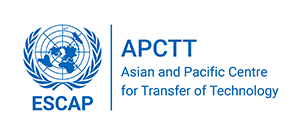Earthquake-proof Foam House
The Federation of American Scientists (FAS), recently tested the stability of structures built with the combination of expanded polystyrene (foam), and cement board. This method of building maintains the rigidity needed, yet remains lightweight, so it can withstand earthquakes of magnitude 10. Remarkably, the structure doesn’t require any wood members to create a rigid frame. FAS is in the process of using this method to build an ‘elegant home’ . When people die in earthquakes, they are often killed by their own houses collapsing on top of them. That could change if a new construction material similar to styrofoam is used instead of more traditional bricks and mortar. In recent tests, a two-storey house built from panels of expanded polystyrene sandwiched between cement boards survived a simulated earthquake of magnitude 10, stronger than the world has ever experienced. The quakes that struck Turkey and Iran in 2003 both measured less than magnitude 7, but thousands died when large numbers of brick buildings collapsed. The foam technology could help prevent such devastating loss of life. The material stands up to violent shaking because the foam is lightweight, while the cement coating makes it rigid - features that help a house to stand when others would fall. Houses made from the composite panels are not only earthquake-proof, but also relatively cheap, simple to construct and energy-efficient. Contact details: Federation of American Scientists 1725 DeSales St., NW 6th Floor Washington, DC 20036 USA Tel: (202)546-3300 Fax: (202)675-1010 E-mail: webmaster@fas.org
Sector: Disaster Management and Mitigation
Country: India
Area of Application: Housing, Earthquake prone regions
Keywords: Earthquake-proof, Foam house
Advantages: Low cost, simple to construct and energy efficient
Environmental aspects: Energy efficiency
Development Status: Commercial Prototype
Legal Protection:
Technical specifications:
Transfer Terms: Consultancy , Others
Target Countries:
Estimated cost (US$):
Upload any relevant document:
Contact Person: UN-ESCAP/APCTT
Address: C-2 Qutab Institutional Area
City: New Delhi
Country: India
Zip/Pin Code:

